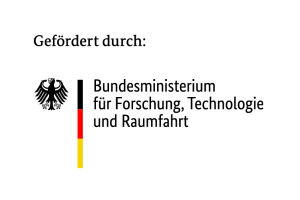Biomedical imaging provides high-resolution insights into the molecular physiology of the human body. Thus it plays an important role in diagnosing diseases and monitoring health. With conventional tools such as Magnetic Resonance Imaging (MRI) and Positron Emission Tomography (PET), molecular specificity and coverage of the analyses are limited. Whereas mass spectrometry imaging (MSI) using Matrix-assisted Laser Ionisation (MALDI) offers a label-free approach to analyse clinical tissues, tumours and 3D cell cultures at cellular resolution in unprecedented molecular detail. MSI can map hundreds of metabolites and lipids from a single tissue section. However, the metabolome coverage is still limited due to chemical noise and competing background ions from other molecules. This restricts MSI technology to those lipids and peptides that are abundant in a biological sample. To overcome this challenge, researchers aim to develop post-ionisation methods using dual laser-based MSI instrumentation (MALDI-2) in the project »Imaging Tissue Metabolism with Enhanced Sensitivity of Dual Laser Mass Spectrometry«. The second laser provides a post-ionisation boost, which enables the mass spectrometer to detect metabolites even though they are not abundant or poorly ionized through chemical noise or competition from other molecules.
Mapping pathways for a better understanding of cardiovascular and cancer metabolism
The aim of the project is to optimise the existing MALDI-2 imaging technology for small molecule metabolites, and map the activity of key metabolic pathways in a variety of tissue samples. The scientists work to spatially map metabolites from energy, glycolysis and central carbon metabolism pathways. They are critical in understanding the physiological processes associated with cardiovascular and cancer metabolism. The project serves to expand the medical applications of MSI for clinical metabolomics and further the spatial understanding of the metabolism in various biological and clinical systems.
Shedding light on diseases’ metabolic heterogeneity
Cellular metabolic heterogeneity among diseased tissues, for example in the heart or liver, as well as in tumours, is one of the major reasons for poor diagnosis or therapeutic failures, and a bottleneck for precision medicine. The advanced MALDI-2 MSI technology can provide detailed cellular maps of key metabolic pathways and their spatial activities to decipher the metabolic heterogeneity of cancer, cardiovascular and other metabolic disease. Thus, it can improve the diagnosis as well as the biochemical understanding of disease mechanisms and help find novel therapeutic targets.
